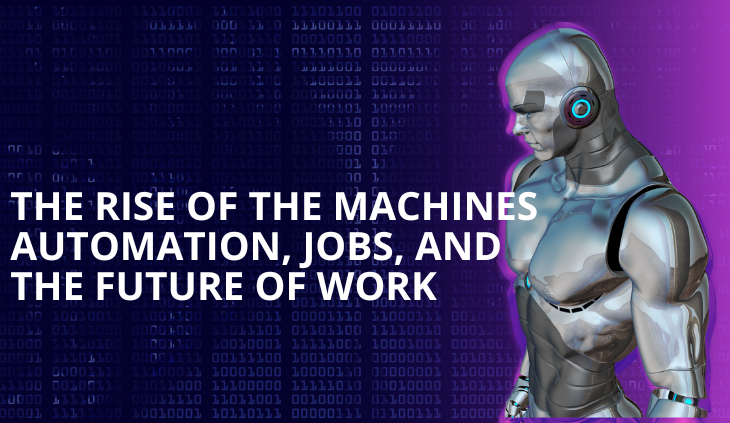The relentless march of technology is reshaping every facet of our lives, and the world of work is no exception. The rise of automation and artificial intelligence (AI) is rapidly blurring the lines between human and machine capabilities, sparking a crucial conversation about the future of jobs. Are we facing a jobless dystopia where robots claim our roles, or does this technological wave hold the potential for a richer, more fulfilling working world?
Jobs Reimagined, Not Replaced:
While headlines often sensationalize the threat of widespread job displacement, the reality is more nuanced. Automation undeniably transforms the nature of work, shifting away from repetitive tasks towards those requiring uniquely human skills. Imagine assembly lines manned not by factory workers but by dexterous robots, freeing humans to focus on design, quality control, and data analysis. Similarly, AI-powered diagnostics can assist doctors in medical decision-making, enabling them to dedicate more time to patient care and complex diagnoses.
This shift isn’t limited to a few select industries. From accountants analyzing financial data with machine learning algorithms to farmers optimizing crop yields with automated drones, a growing number of sectors are embracing automation. While some traditional roles may decline, they’re simultaneously being replaced by new ones demanding different skillsets.
The New Skills Currency:
Adaptability and lifelong learning become the new gold in this evolving landscape. The future workforce will require individuals who can embrace change, continuously acquire new skills, and effectively collaborate with technology. Critical thinking, creativity, and problem-solving abilities will be paramount, allowing us to navigate the complexities of automated systems and develop innovative solutions.
Human-Machine Harmony:
Instead of viewing automation as a job-stealing adversary, we must recognize its potential as a collaborator. Imagine surgeons assisted by robots performing delicate procedures with enhanced precision, or teachers utilizing AI-powered tutors to personalize learning for each student. Technology can augment human capabilities, enhancing productivity and opening doors to possibilities previously unimaginable.
Ethical Considerations:
As we embrace automation, ethical considerations rise to the forefront. Addressing potential biases in AI algorithms, ensuring equitable access to new technologies, and establishing social safety nets for those transitioning from traditional jobs are critical elements of navigating this technological revolution responsibly.
Humanity at the Helm:
Ultimately, the future of work is not a preordained script but a story we write together. By acknowledging the challenges and opportunities presented by automation, equipping ourselves with the right skills, and fostering responsible technological development, we can craft a future where humans and machines work in harmony, shaping a work landscape that is not just efficient but also enriching and fulfilling for all.
